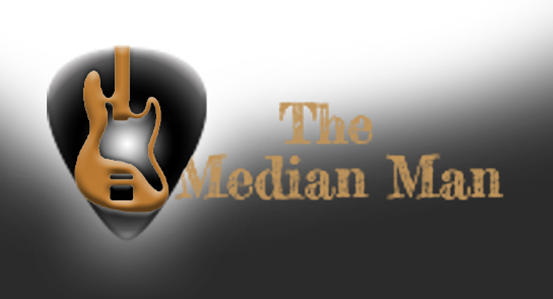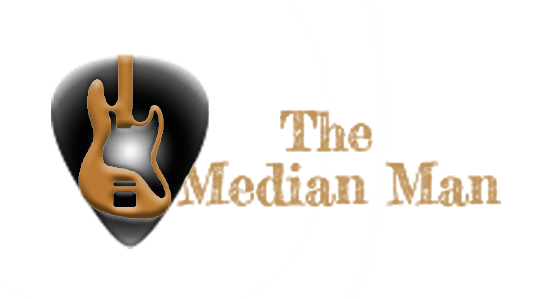What inspired the name of the band? What are your influences and are they the same as when you started out?
During the early 1990s, when we were recording and performing our first gigs, we didn’t have a name. Suddenly, the recording studio required one. At that time, I was immersed in reading literature about the Bible and apocryphal scripts. In my research, I came across the word “eloah,” which loosely translates to “comes from above.” We realized that since our inspiration for writing songs seemed to originate from somewhere beyond ourselves, and because we liked the sound of the name, we chose it as our temporary band name. Additionally, since I was studying physics during that period and wanted to create a unique name, I replaced the “h” with “ħ,” which represents the reduced Planck constant symbol. Our main musical influences encompass singer/songwriter music, 80s rock, jazz, and new age music.
How do you write music and why?
No, intentionally creating songs in that manner is not something I can do. However, I can provide some assistance in explaining the process: Sometimes, when I’m playing the guitar, there are moments of luck where chords and pick patterns seem to effortlessly come together. It’s as if they “appear” out of nowhere. When this happens, I quickly grab a pen and a piece of paper, filled with curiosity about what the lyrics will be. At that point, I have no idea what the song will ultimately be about. After completing the initial draft of the song, I continue to practice it diligently. I strive to refine the lyrics and music until they reach a point where no further changes are happening. It’s a process of optimization, ensuring that both the words and the music blend seamlessly together. Once I feel satisfied with the final version, I present it to my colleagues in the band. Alternatively, there are times when some of us gather as a group and engage in improvisation and we build songs collectively through this collaborative process. However, the method I described earlier holds true for approximately 80 percent of the songs we create.
Writing music is a source of liberation for me. It serves as a form of artistic expression, allowing me to give shape and form to my emotions and ultimately set them free. It becomes a means to release the thoughts and feelings that may otherwise remain trapped within. Within the process of composing, I find a therapeutic sanctuary. The act of putting pen to paper or fingers to instrument provides an outlet for the depths of my being. It becomes a language through which I can communicate the nuances of my inner world. The melodies I create and the lyrics I write become vehicles of emotional release. They carry the weight of my experiences, allowing me to convey what may be difficult to express in ordinary conversation. Through the music I craft, I find a sense of liberation and a way to navigate the complexities of my own heart. Writing music provides me with a sense of catharsis, a means to process and heal. It grants me the opportunity to explore my emotions, to give them structure and meaning. As I immerse myself in the creative process, I discover a newfound freedom, a release from the burdens that may weigh upon me. In essence, writing music becomes a therapeutic journey, guiding me towards self-discovery and emotional well-being. It allows me to embrace and honor the full range of my emotions, ultimately leading to a sense of inner harmony and a deeper understanding of myself.
How do you write music and why?
No, intentionally creating songs in that manner is not something I can do. However, I can provide some assistance in explaining the process: Sometimes, when I’m playing the guitar, there are moments of luck where chords and pick patterns seem to effortlessly come together. It’s as if they “appear” out of nowhere. When this happens, I quickly grab a pen and a piece of paper, filled with curiosity about what the lyrics will be. At that point, I have no idea what the song will ultimately be about. After completing the initial draft of the song, I continue to practice it diligently. I strive to refine the lyrics and music until they reach a point where no further changes are happening. It’s a process of optimization, ensuring that both the words and the music blend seamlessly together. Once I feel satisfied with the final version, I present it to my colleagues in the band. Alternatively, there are times when some of us gather as a group and engage in improvisation and we build songs collectively through this collaborative process. However, the method I described earlier holds true for approximately 80 percent of the songs we create.
Writing music is a source of liberation for me. It serves as a form of artistic expression, allowing me to give shape and form to my emotions and ultimately set them free. It becomes a means to release the thoughts and feelings that may otherwise remain trapped within. Within the process of composing, I find a therapeutic sanctuary. The act of putting pen to paper or fingers to instrument provides an outlet for the depths of my being. It becomes a language through which I can communicate the nuances of my inner world. The melodies I create and the lyrics I write become vehicles of emotional release. They carry the weight of my experiences, allowing me to convey what may be difficult to express in ordinary conversation. Through the music I craft, I find a sense of liberation and a way to navigate the complexities of my own heart. Writing music provides me with a sense of catharsis, a means to process and heal. It grants me the opportunity to explore my emotions, to give them structure and meaning. As I immerse myself in the creative process, I discover a newfound freedom, a release from the burdens that may weigh upon me. In essence, writing music becomes a therapeutic journey, guiding me towards self-discovery and emotional well-being. It allows me to embrace and honor the full range of my emotions, ultimately leading to a sense of inner harmony and a deeper understanding of myself.
How do you decide what to perform live?
In general, faster and simpler songs tend to be more effective in a live setting compared to complex and slow songs. However, it’s important to note that there are always exceptions to this rule. When it comes to live performances, we strive to present our songs in a slightly different manner than their recorded versions in order to maintain an element of intrigue and captivate the audience’s attention. I would also like to point out that in our present line-up we have not played live yet.
How do you decide what to perform live?
In general, faster and simpler songs tend to be more effective in a live setting compared to complex and slow songs. However, it’s important to note that there are always exceptions to this rule. When it comes to live performances, we strive to present our songs in a slightly different manner than their recorded versions in order to maintain an element of intrigue and captivate the audience’s attention. I would also like to point out that in our present line-up we have not played live yet.
What plans do you have for the future?
For an extended duration, we have dedicated ourselves to the creation of a new album. This forthcoming release centers around the exploration of diverse facets of pain, making it an undeniable milestone in our artistic journey. It will serve as a testament to our most profound and somber body of work to date, encompassing compositions that present the greatest level of difficulty we have ever encountered. The process of crafting this album has undoubtedly posed significant challenges for all involved. However, witnessing the unwavering enthusiasm exhibited by every musician participating in this endeavor fills me with immense optimism. I hold a steadfast belief that this album will not only be our heaviest and most intense offering but also our most outstanding work to date in every aspect.

